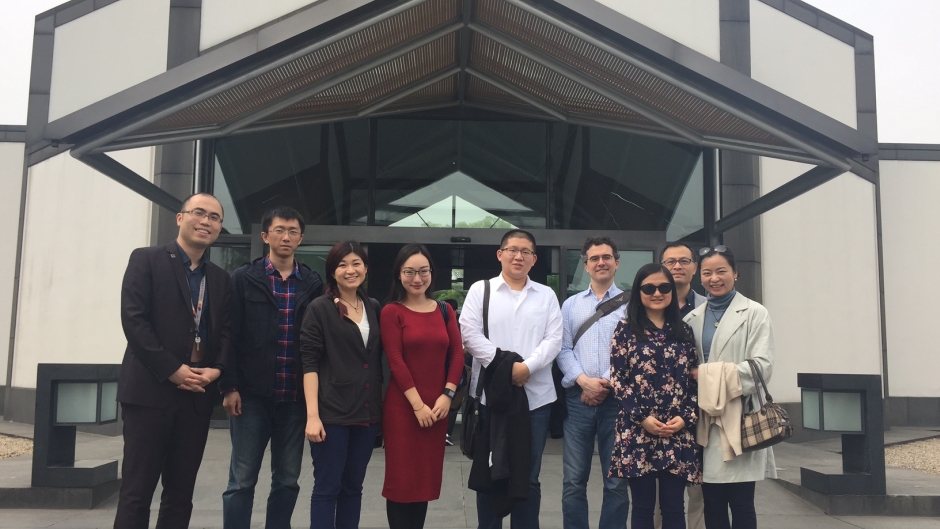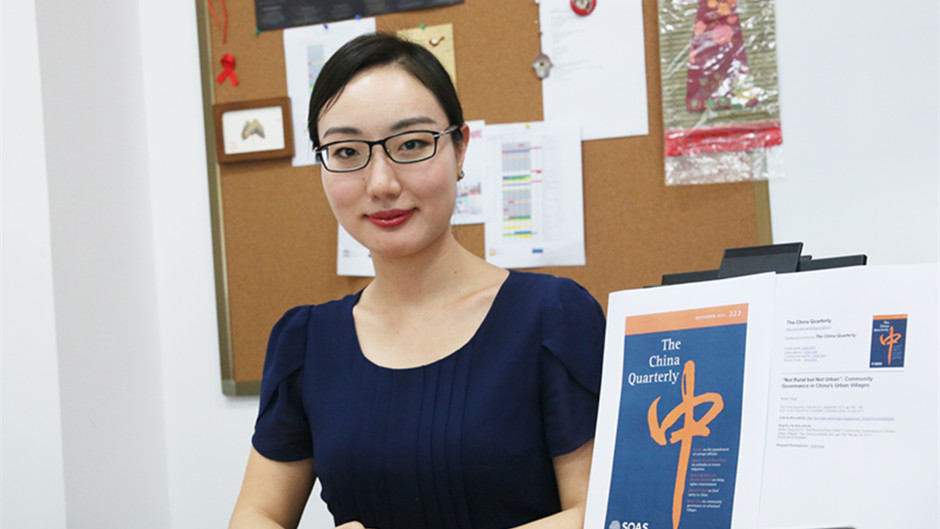15 Mar 2017
Dr Beatriz Carillo Garcia of the Department of China Studies at Xi’an Jiaotong-Liverpool University has been researching the state of social welfare provision for China’s migrant workers.
Her paper, ‘Migrant labour and the sustainability of China’s welfare system’, was published in the online quarterly 'Made in China', produced by the Australian National University Press, and was also included in its 2016 yearbook as one of the most significant articles of that year.

The paper looks at changes to welfare provision for China’s migrant workers following reforms since 2008 and finds that further incentives are needed for provincial governments to provide equal benefits to those from outside their usual jurisdiction.
The recent history of social welfare in China is somewhat complex.
“A legacy of the Mao era was that the State provided welfare for urban citizens but people in the countryside had to be self-reliant,” explains Dr Carrillo Garcia.
“With reform and opening in the late 1970s came the collapse of the danwei (‘work unit’) system, but nothing had been established to replace what it had provided – education, housing, health insurance, pensions. Meanwhile the countryside didn’t have any safeguards.”
A new social security system was put in place in cities in the late 1990s, with similar systems being introduced in the countryside later. However, these systems remained entirely separate in terms of management, budgets, and benefits provided - usually with much lower benefits for rural than urban areas. This creates problems for sick or injured migrant workers who cannot afford care where they are working, particularly in cities like Shanghai and Beijing where migrant workers are the most numerous.
“The Central Government has attempted to harmonise rural and urban social welfare since 2008,” explains Dr Carrillo Garcia, “creating a national social welfare system and closing the gap in economic development between rural and urban areas.
“But protectionism exists at the provincial level, with local governments unwilling to provide care to migrant workers from other provinces. The Central Government could introduce incentives to correct this.”
Dr Carrillo Garcia’s research mainly concerns social development and change in contemporary China. In addition to her work on welfare for migrant workers, she has researched the incursion of private entrepreneurs into the provision of health and education services in China, and is currently developing a research project on charitable giving in Suzhou.
Born in Mexico, Dr Carrillo Garcia was based in Australia for 15 years and is currently on a two-year leave from the University of Sydney to join the Department of China Studies at XJTLU.
“Prior to taking up this position I hadn’t been to China for over two years,” she says. “I feel better able to write about Chinese society while I’m experiencing it first-hand.”
Dr Carrillo Garcia is currently teaching the module ‘China: family and society’, which gives students an historical background of the traditional family system in China, through to the radical family changes of the Maoist period. This gives students important context for discussing contemporary issues.
“We cover issues around gender, family planning, changing value systems, and less widely-viewed issues such as divorce and domestic violence,” she says.
“We also look at contemporary ideas about family, responsibility, the process of ‘individualisation’ and how this affects family life, and we look at those excluded from the traditional family – ‘left behind women’, LGBT people."
Find out more about the academic degree programmes offered by the Department of China Studies.
Dr Carrillo Garcia’s paper, ‘Migrant labour and the sustainability of China’s welfare system’, is available to read online in the latest issue of the Made In China quarterly.
15 Mar 2017
RELATED NEWS

China Studies academic comments on China’s “16+1” platform
An academic from the Department of China Studies at Xi’an Jiaotong-Liverpool University has commented on China’s “16+1”, a cooperation mechanism between Chin...
Learn more

Cross-disciplinary project seeks to better understand Suzhou
A cross-disciplinary project involving academics from a range of departments at Xi’an Jiaotong-Liverpool University is hoping to better understand Suzhou and...
Learn more

China Studies academic awarded prestigious prize from The China Quarterly
Dr Beibei Tang from the Department of China Studies has won a prestigious prize for her article published in The China Quarterly, the world’s leading China S...
Learn more

China captures the hearts of summer school students
The Department of China Studies hosted the 2016 China Studies Summer School in July, taking students from its base at Xi’an Jiaotong-Liverpool University in ...
Learn more








